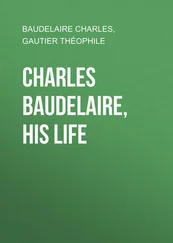Charles Lever - Charles Lever, His Life in His Letters, Vol. II
Здесь есть возможность читать онлайн «Charles Lever - Charles Lever, His Life in His Letters, Vol. II» — ознакомительный отрывок электронной книги совершенно бесплатно, а после прочтения отрывка купить полную версию. В некоторых случаях можно слушать аудио, скачать через торрент в формате fb2 и присутствует краткое содержание. Жанр: foreign_antique, foreign_prose, на английском языке. Описание произведения, (предисловие) а так же отзывы посетителей доступны на портале библиотеки ЛибКат.
- Название:Charles Lever, His Life in His Letters, Vol. II
- Автор:
- Жанр:
- Год:неизвестен
- ISBN:нет данных
- Рейтинг книги:5 / 5. Голосов: 1
-
Избранное:Добавить в избранное
- Отзывы:
-
Ваша оценка:
- 100
- 1
- 2
- 3
- 4
- 5
Charles Lever, His Life in His Letters, Vol. II: краткое содержание, описание и аннотация
Предлагаем к чтению аннотацию, описание, краткое содержание или предисловие (зависит от того, что написал сам автор книги «Charles Lever, His Life in His Letters, Vol. II»). Если вы не нашли необходимую информацию о книге — напишите в комментариях, мы постараемся отыскать её.
Charles Lever, His Life in His Letters, Vol. II — читать онлайн ознакомительный отрывок
Ниже представлен текст книги, разбитый по страницам. Система сохранения места последней прочитанной страницы, позволяет с удобством читать онлайн бесплатно книгу «Charles Lever, His Life in His Letters, Vol. II», без необходимости каждый раз заново искать на чём Вы остановились. Поставьте закладку, и сможете в любой момент перейти на страницу, на которой закончили чтение.
Интервал:
Закладка:
“Old Begration once told the Duke of Wellington that the discovery of a French horse-shoe ‘not roughed’ for the frost in the month of October was the reason for the burning of Moscow. They said: ‘These French know nothing of our climate; one winter here would kill them,’ It was the present Duke told me this story.
“You will have had my O’D. on the Conference before this, and if the Debate offer anything opportune for comment I’ll tag it on. The fact is, one can always do with an ‘O’Dowd’ what the parson accomplished when asked to preach a charity sermon, – graft the incident on the original discourse. Indeed I feel at such moments that my proper sphere would have been the pulpit. Perhaps I am more convinced of this to-day, as I have gout on me. Don’t you know what Talleyrand said to the friend who paid him a compliment on his fresh and handsome appearance as he landed at Dover? – ‘Ah! it’s the sea-sickness, perhaps, has done it.’”
To Mr John Blackwood.
“Villa Morelli, Florence, July 10, 1864.
“What a hearty thing it was with you to send me the Bishop’s letter. I hope I may keep it. Do you know that it was by the merest accident that I did not allude to himself in the paper – or, rather, it was out of deference to his apron; for one of the most brilliant evenings I ever remember in my life was having the Bishop and O’Sullivan to dine with me and only two others, and Harry Griffin was the king of the company. Moore used to say, when complimented on his singing the melodies, ‘Ah! if you were to hear Griffin.’ But why don’t he recognise me? When we are ready with our vol. i. I shall ask you to send one or two, or perhaps three or four, copies to some friends. Let me beg one for the Bishop, and I’ll send a note with it. I think your note will do me good. It has already, and I am down and hipped and bedevilled cruelly.
“Palmerston will, I take it, have a small majority, but will he dissolve?
“I only ask about the length of T. B. on your account; for my own part I rather like writing the story, and if the public would stand it, I’d make it as long as ‘Clarissa Harlowe.’”
To Mr John Blackwood.
“Florence, July 11, 1864.
“I send you a short O’D. on the Debate, and so I shall spare you a letter. If, as now, there is no time for a proof, – though I think there may, – look to it closely yourself. My hand at times begins to tremble (I never give it any cause), and I find I can scarcely decipher some words. How you do it is miraculous. My gout will not fix , but hangs over me with dreariness and ‘devil-may-careisms,’ so that though I have scores of great intentions I can do nothing.
“I count a good deal on a two hours’ swim, and I am off to take it by Wednesday. If the sharks lay hold on me, finish T. B. Marry him to Alice, and put the rest of the company to bed indiscriminately.”
To Mr John Blackwood.
“Florence, July 12, 1864.
“I send you with this a few lines to finish the serial O’D., a few also to complete ‘Be always ready with the Pistol,’ and – God forgive me for the blunder! – two stray pages that ought to come in somewhere (not where it is numbered) in the last-sent O’D. on ‘Material Aid.’ Will your ingenuity be able to find the place – perhaps the end? If not, squash it, and the mischief will not be great.
“I start to-night for the sea-side, so that if you want to send me a proof for the next ten days, send it in duo , one to Spezzia and the other here, by which means you shall have either back by return of post.
“The thermometer has taken a sudden start upwards to-day, 26° Réamur, and work is downright impossible. The cicale too make a most infernal uproar, for every confounded thing, from a bug to a baritone, sings all day in Italy.”
To Mr John Blackwood.
“Villa Morelli, Florence, July 23, 1864.
“I was getting a great stock of health, swimming and boating at Spezzia, when I was called back by the illness of my youngest daughter, a sort of feverish attack brought on by the excessive heat of the weather, 92° and 93° every day in the shade. She is, thank God, a little better now, and I hope the severest part is over. When shall I be at work again? There never was so much idleness assisted by an evil destiny.
“What a jolly letter you sent me. I read it over half a dozen times, even after I knew it all, just as an unalterable toper touches his lips to the glass after emptying it. I wish I could be as hopeful about O’D., – not exactly that , but I wish I could know it would have some success, and for once in my life the wish is not entirely selfish.
“You will, I am sure, tell me how it fares, and if you see any notices, good or bad, tell me of them.
“What a strange line Newdigate has taken, – not but he has a certain amount of right in the middle of all the confusion of his ideas. Dizzy unquestionably coquetted with Rome. Little Earle, his secretary, was out here on a small mission of intrigue, and I did my utmost to show him that for every priest he ‘netted’ he would inevitably lose two Protestants – I mean in Ireland. As for the worldly wit of the men who think that they can drive a good bargain with the ‘Romish’ clergy, all I can say is that they have no value in my eyes. The vulgarest curé that ever wore a coal-scuttle hat is more than the match of all the craft in Downing Street.
“You are quite right, it would do me immense good to breathe your bracing air, but it ‘mauna be.’ I wish I could see a chance of your crossing the Alps – is it on the cards?
“I wish I was twenty years younger and I’d make an effort to get into Parliament. Like my friend Corney, my friends always prophesied a success to me in something and somewhere that I have never explored – but so it is.
“Oh! for the books that have never been written,
With all the wise things that nobody has read.
And oh! for the hearts that have never been smitten,
Nor heard the fond things that nobody has said.
“ My treasures are, I suspect, safely locked in the same secure obscurity. N’importe! at this moment I’d rather be sure my little girl would have a good night than I’d be Member for Oxford.”
To Mr Alexander Spencer.
“Villa Morelli, Florence, July 23, 1864.
“It would be unfair amidst all your labours to expect you could read through the volume of ‘Corney O’Dowd’ that Blackwood will have already sent – or a few days more will bring – to you. Still, if you will open it, and here and there look through some of those jottings-down, I know they will recall me to your memory. It is so very natural to me to half-reason over things, that an old friend [? like] yourself will recognise me on every page, and for this reason it is that I would like to imagine you reading it. My great critics declare that I have done nothing so good since the ‘Dodds,’ – and now, enough of the whole theme!
“Here we are in a pretty villa on a south slope of the Apennines, with Florence at our feet and a glorious foreground of all that is richest in Italian foliage between us and the city. It is of all places the most perfect to write in, – beauty of view, quiet, silence, and seclusion all perfect, – but somehow I suppose I have grown a little footsore on the road. I do not write with my old facility. I sit and think – or fancy I think – and find very little is done after [all].
“The dreary thought of time lost and talent misapplied – for I ought never to have taken to the class of writing that I did — will invade, and, instead of plodding steadily along the journey, I am like one who sits down to cry over the map of the country to be traversed.
Читать дальшеИнтервал:
Закладка:
Похожие книги на «Charles Lever, His Life in His Letters, Vol. II»
Представляем Вашему вниманию похожие книги на «Charles Lever, His Life in His Letters, Vol. II» списком для выбора. Мы отобрали схожую по названию и смыслу литературу в надежде предоставить читателям больше вариантов отыскать новые, интересные, ещё непрочитанные произведения.
Обсуждение, отзывы о книге «Charles Lever, His Life in His Letters, Vol. II» и просто собственные мнения читателей. Оставьте ваши комментарии, напишите, что Вы думаете о произведении, его смысле или главных героях. Укажите что конкретно понравилось, а что нет, и почему Вы так считаете.








![William Frith - John Leech, His Life and Work. Vol. 1 [of 2]](/books/747171/william-frith-john-leech-his-life-and-work-vol-thumb.webp)

![William Frith - John Leech, His Life and Work, Vol. 2 [of 2]](/books/748201/william-frith-john-leech-his-life-and-work-vol-thumb.webp)

